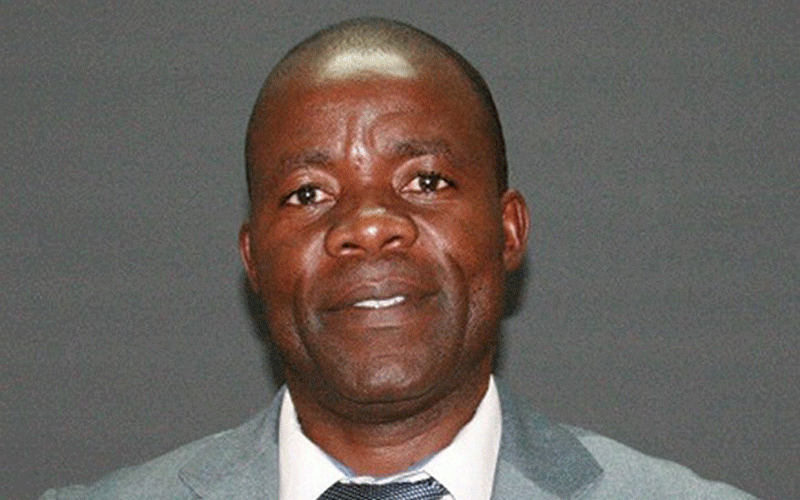
THAT climate change and food sovereignty are defining issues of our time is no longer debatable. It follows wherever elections are held across the world, from local councillor to President, leaders should be voted on the basis of their plans to tackle climate change and food sovereignty issues.
It is good that climate change and food sovereignty are also finding their way into corporate boardrooms. This implies that corporate leaders should be promoted on the basis of their understanding of climate change and food sovereignty.
You cannot just be a board chairperson or chief executive officer without clear strategies on how your role will address climate change and food sovereignty. Even in traditional leadership systems, aspiring chiefs should be conversant with climate change and food sovereignty so that they do not sacrifice natural resources like forests and minerals for personal gain.
Reluctance to recognise agroecology
One of the enduring challenges is reluctance by most governments to fully embrace agroecology as a solution to biodiversity loss, food security, nutrition security and climate change mitigation, among other benefits. More than 40 countries and a few big international organisations like the European Union have recognised agroecology, but more need to come on board so that agroecology has the much-needed critical mass. Several countries are still torn between industrial agriculture and agroecology with no clear national strategy on food sovereignty. There is also a tendency to promote a narrow definition of food sovereignty, whereby some countries think producing enough maize and wheat is tantamount to food sovereignty.
Yet as long as these commodities are controlled by a few corporates from seed to the dinner table, that cannot be food sovereignty. Food sovereignty starts from the control of seed and other natural resources as well as food diversity from local to national levels.
Building local, global pathways
As currently framed, global climate conferences like the recent COP27 are not connected with the grassroots. Local communities have no idea what is discussed at such gatherings, which draw a lot of media attention. There are also no pathways for national representatives who participate at those conferences to provide useful feedback to communities after returning from those big events.
- CCC urged to push for dialogue over reforms
- A peep into Matenganyika’s artistic closets
- The Bioskop Short Film Competition is back
- Mangwe farmers benefit from agric projects
Keep Reading
Meanwhile, several non-governmental organisations (NGOs) have grabbed climate change as a theme for their interventions, but with very little involvement of communities and government policymakers.
Some of the issues that NGOs are grappling with include how to build advocacy strategies around climate change and food systems. What is the entry point when developing such strategies given that causes of climate change may be coming from distant industrial countries outside the control of local communities? What are the socio-economic indicators of how climate change is impacting women and youth, for instance? How is climate change impacting food systems in different communities?
If industrialisation is the main driver of climate change, how can policymakers balance climate change mitigation measures with employment creation and industrial development?
Political will
With sufficient political will, governments and development agencies can develop and promote climate-friendly technologies related to agroecology. Unfortunately, government extension services that are supposed to be promoting agroecology and other climate-friendly approaches in favour of food sovereignty are promoting industrially-produced chemicals and hybrids owned by private seed companies at the expense of community-owned seed varieties.
In some cases, farmers get confused when an extension officer who preaches the gospel of hybrids starts talking about local seed varieties. That contradiction is undermining food sovereignty in most African countries.
An integrated approach in addressing climate change and food sovereignty is missing in most countries. When climate change advocates treat climate change as a standalone issue in ways that exclude government departments like those responsible for environmental management and forestry, there is often no traction.
While at community level, communities are invited to participate in reclaiming gully and other disaster-risk reduction initiatives, specific government departments responsible for women affairs, youth, ICTs and food markets are often excluded. Yet it is critical to show how climate change is impacting market actors like women, vendors and youth in terms of exacerbating unemployment and loss of business opportunities.
Such climate change-related shocks as drought and floods do not affect farming communities only, but entire value chains including traders, transporters, food vendors and others. In the African contexts, where income is low and people have no capacity to survive on imported commodities — women vendors, traders and farmers and low-income consumers are more affected by climate change in the form of drought, among other shocks.
Better consolidation of strategies
Consolidated systems for taking these voices to policy level are missing in developing countries while global events like COP27 and World Food Day are not the right platforms for ordinary people. In most countries, World Food Day happens in cities with people marching for media attention, not farming communities who bear the brunt of climate change-related shocks like floods, dry spells and loss of biodiversity. It is sad that climate change mitigation and food systems policies are detached from the reality of the majority.
To what extent are the most impacted populations involved in informing policies on issues that are impacting them, most of which they cannot control? How can we integrate climate change with livelihoods and socio-economic solutions for affected communities?
Platforms that focus on climate change mitigation and food sovereignty should be supported at fiscal level. Instead of NGOs driving climate change mitigation in silos through their own networks and funders, government should take the lead in both resourcing and guiding interventions. Participatory systems for policy influencing are needed as well as strong pathways for communicating issues from grassroots to policy.
This is different from a tendency by development organisations to only produce climate change reports just to please funders. There should be broader accountability and engagement that ensures policy engagements start with reviving local platforms such as Zunde raMambo/Isiphala seNkosi. Building synergies between government departments, traditional leaders, development agencies and political leaders can be the best way of driving climate change mitigation and achieving food sovereignty. Why should politicians be interested in elections while out-sourcing fundamental issues like climate change and food sovereignty to development partners? With sufficient co-ordination, a fund for climate change and food sovereignty can be set up and managed from national, all the way to community level.
This can be implemented through supply chains and economic drivers, for instance, climate change and indigenous fruits, climate change and indigenous livestock, climate change and small grains, climate change and mass food markets, so on.
Building dams not enough
Climate-proofing food systems is not just about building dams. In fact, most African countries are not getting returns on investing in large water bodies as seen through most of the big dams either being under-utilised or water being diverted to unintended purposes.
Why should a dam built among local communities be used to irrigate sugarcane plantations many kilometres away when reviving local food systems like small grains, indigenous rice, small livestock, indigenous fruits and indigenous vegetables solves more challenges?
Supporting local food systems is authentic food sovereignty unlike directing most of the water and resources to individual crops like sugar and wheat.
Local communities should benefit directly from large water bodies rather than allowing food systems to be captured by corporates. The fight for food sovereignty should start with political will and ensuring the relationship between natural resources is properly streamlined.
For instance, income from mining should compensate the use of land that could have been used for food systems, but ended up being sacrificed for mining.
Part of mining proceeds should reclaim degraded land to ensure food sovereignty rather than tokenistic corporate social responsibility gestures.
Countries producing tobacco for export like Malawi and Zimbabwe should ensure income from tobacco enhances food sovereignty.
Money from flower exports to Europe should be used to promote local food systems as part of compensating the opportunity cost of putting the best land under export crops.








